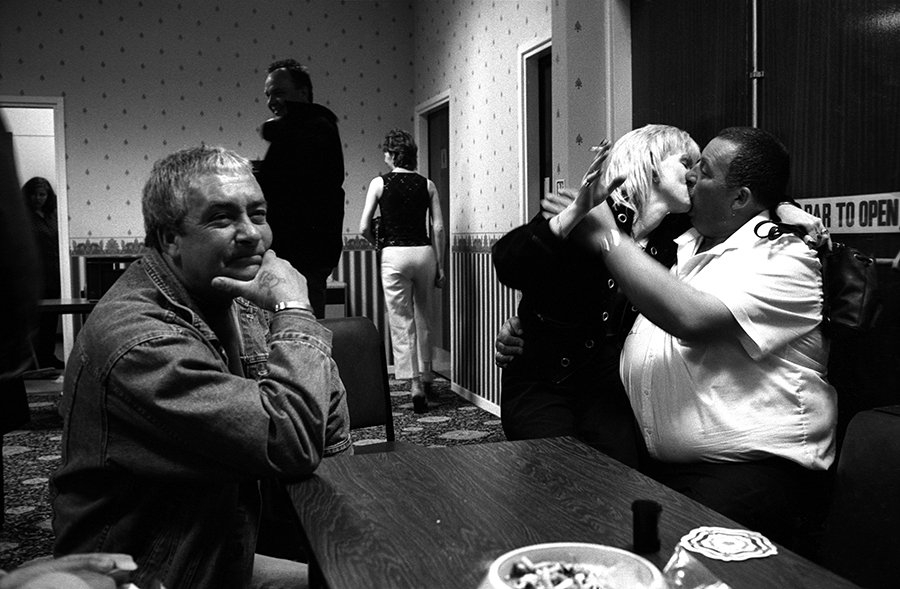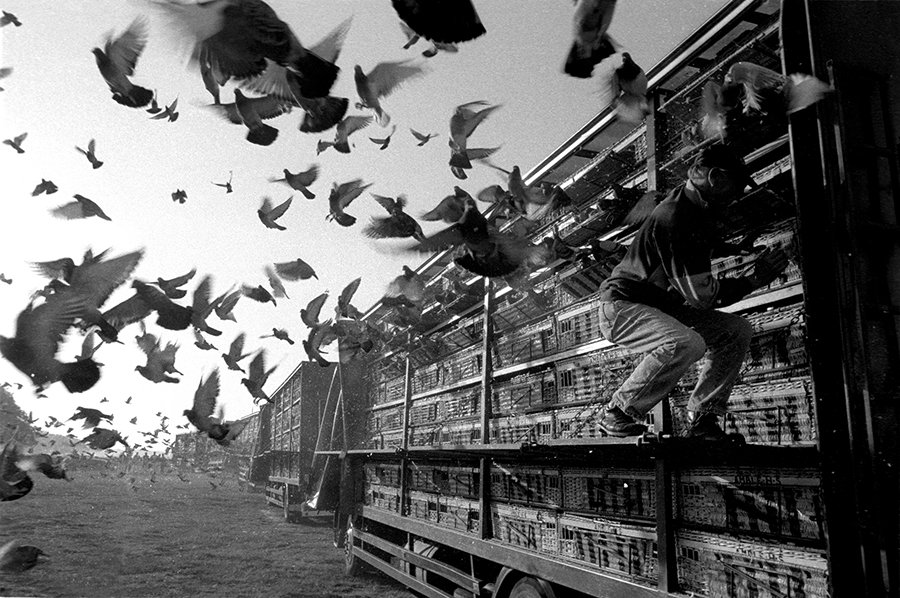Love
Pigeon racing is about love: the love of the pigeon breeder for his birds, and the love of the birds for one another. Pigeon couples remain together for life. Matching the best mates and keeping the pigeons fit and healthy is essential to obtain successful racing pigeons. Zak Waters’ fascination with this bird world has produced an insightful series in which the involvement of the pigeon fanciers with their birds is clearly shown. The excitement when the pigeons are let loose is enormous. The long wait for the pigeon racers begins once the pigeons have been taken in their baskets to the location chosen for the race. The distance of the race can vary from 300 km to a two-day flight to Belgium, France or Spain (up to 1300 km). The pigeon racers peer into the sky until the sun is going down to see their pigeons return home of their own free will.
Working-class sport
The sport was developed in the early nineteenth century by labourers who were looking for opportunities to share congenial company, for the excitement of the race, but above all for the freedom that the bird symbolises. The first real pigeon race was held in Belgium in 1818, followed by the Netherlands in 1840. The sport gradually conquered Great Britain and the rest of Europe. Pigeon racing seems to be slowly dying out, at least in Europe, due to the ageing of the participants and the major blows to pigeon breeding from the economic recession of the 1980s. The sport was passed on from father to son generation after generation, but young people today are no longer interested. Ironically enough, pigeon racing has become big business all over the world, with prices of up to € 250,000 for the most successful racing pigeons and prizes of as much as € 50,000.
Press

